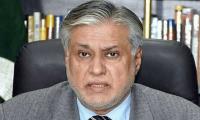Islamabad: Nadia Rehman, Member, Food Security and Climate Change, Planning Commission, has underscored the urgency of aligning green economic instruments with Pakistan’s broader reform agenda under the Uraan Pakistan programme and its 5Es Framework (Exports, E-commerce, Environment, Energy, and Equity).
Nadia was delivering keynote address at pre-budget consultative dialogue on “Greening the macro-fiscal economic regime for low carbon development” jointly hosted by Planning Commission of Pakistan, Pakistan-German Climate and Energy Partnership (PGCEP) and Sustainable Development Policy Institute (SDPI) here Wednesday.
Nadia said the Planning Commission is working with Federal Ministries and provinces to develop sectoral plans and performance agreements, positioning itself as the central platform for mainstreaming green reforms. Citing Pakistan’s balance of payments crisis, she stressed the need to lower borrowing costs through climate finance. “This is not just about the environment—it’s an economic imperative,” she said.
Rehman pointed out that climate finance can cut borrowing and infrastructure costs, whereas the country should adapt to global net-zero shifts and address Scope 1–3 emissions to stay competitive amid rising carbon border adjustments. She highlighted steps like climate screening of public projects, updates to risk resilience processes and collaboration with the Finance Ministry, State Bank and SECP to embed climate risk into financial systems. Blended finance tools, such as de-risking and first-loss guarantees, are also under development to attract private capital.
Pakistan Workers Federation Secretary General and Mazdoor Union leader Chaudhry Muhammad Yasin addresses media person...
Special Envoy and Ambassador Extraordinary of the Federal Democratic Republic of Ethiopia Dr Jemal Beker Abdula ...
AI Artificial Intelligence words are seen in this illustration taken on May 4, 2023. — Reuters Islamabad:A...
Federal Minister for Climate Change and Environmental Coordination, Senator Musadik Masood Malik chairing a meeting on...
This undated photo shows a view of hailstorm amid winter season. — PPI/FileIslamabad: The National Disaster...
Minister of Foreign Affairs Senator Ishaq Dar addresses the 38th Annual General Meeting and Conference of Pakistan...







